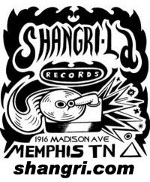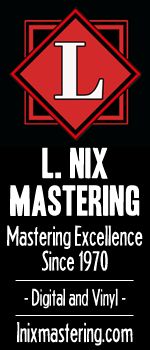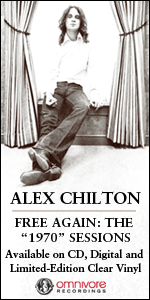For any music community to work, it needs talented, committed people working in tandem. But for that community to do something special, it needs a few superheroes. These are the rare and uniquely talented people who not only know everyone, they seem to know everyone well. They could take their gifts to industry capitals, but invest instead in their hometown. They make connections. They bring out the best in people. They’re inexhaustible.
In other words, every music community needs a Cindy Cogbill.
The global headquarters for the Folk Alliance is Memphis, Tennessee, and Cindy Cogbill is the managing director. This week (Feb 16-20), the 23rd International Folk Alliance Conference will take place in downtown Memphis. Artists and music industry types from all across the world–over 2000 people in all–will spend the week in Memphis. They’ll network, learn, teach, and (most importantly) hear amazing music, virtually non-stop, for four days straight.
Cindy helps run this show.
I met Cindy for a cup of coffee. We talked about this week’s conference, Memphis music, Jamaican bobsledders, and everything in between. In person, what immediately comes across is how supportive, thoughtful, and tireless Cindy is about the things she loves. To an independent artist (like me) playing this year’s conference (like me), she’s a superhero.
(Inexplicable Cockney accent), ‘Allo, Cindy!
Hello, Chris!
Let’s start with some layups. Where are you from?
Memphis.
Where’d you go to school?
Bolton High School and a multitude of colleges. I finished at University of Memphis, happily.
What’d you study at U of M?
Political science and Russian.
Naturally.
Naturally.
So when did you start with the Folk Alliance?
July of 2005.
Let’s get right to it: your annual International Folk Alliance Conference is this week (Feb 16-20). How did it start? Has it always been in Memphis?
It hasn’t. We are in the twenty-third year of the actual international event, but the folk alliance is an older tradition. It was started by a husband and wife in California as a community gathering of people who like to play music.
It grew, so they turned it into a non-profit based in downtown Washington, D.C. For eighteen years, they had a nomadic annual conference–they recreated the wheel every year in a different city, and every few years in Canada.
In 2003, they decided, “let’s establish a world headquarters that’s actually accessible to people where they can get membership services all year round…AND put the event in a home alongside the office, so it can serve the community long-term.” So they started a five-year plan and moved it to Memphis.
Memphis is now the world headquarters for the Folk Alliance, and we host the international conference every year, until at least 2012.
And then where does the conference go?
That’s up in the air. In 2013, it’s signed for Toronto. For 2014-2019, it’s down to three different cities, Memphis being one of them.
They have such good plans for it. They’re looking at doing a venue, a concert hall, a community center, and an archives center for traditional music. As we take the word “folk” and watch it evolve into an all-encompassing genre, the archives center could show how that evolution took place.
That would be great. I still have in mind the image of the old-school “folkie,” someone post-Depression, singing protest songs, dressed like Woody Guthrie, etc. But in the 60’s, artists like Dylan took that music in new directions. I’m still amazed that my music’s been welcomed under this canopy of “folk” for the conference. How would you say the conference is different now from ten or fifteen years ago?
We use a wider definition of the word “folk.” It’s anything indigenous to one’s culture. So, it has roots in bluegrass, soul, jazz, blues, singer/songwriters, storytelling, childrens’ music, world music. Depending on where the conference was in years past, that’s what type of music it would focus on more.
Memphis was a really good melting pot, because it brought in such a variety of roots music. And music fans really want to come here–it’s kind of a mecca of American music.
I can tell you that from 2005 until now has been astounding because the average age has changed. It’s a younger crowd. Mainstream culture has changed. With Feist, Mumford & Sons, Ray LaMontagne, David Gray, Wilco, and all these popular artists calling themselves alt-country/indie/folk, ”folk” has kind of become a cool word again. So we’re seeing people ages 20-35 jumping in, saying “I want to be a part of that.”
Exactly, even in just the last few years. It seems like so many of the breakout artists have been kind of “roots” artists: Avett Brothers, Mumford & Sons, Dawes, Monsters of Folk, etc.
A big factor there has been the increase of–I hate to throw this term around–“do it yourself” recording. People now can record with good quality and for not much money what it sounds like when they’re sitting around and having a good time. It breeds creativity, and of course you’re going to hear a lot of honest music.
Take me through an average day at the conference. What does that look like?
Favorite question! Okay. I’m going to take you, Chris, as a performer through the conference…
First, there’s a night that’s open to the public. It’s Wednesday, February 16. A wristband will get you access to an amazing lineup: Amy LaVere, the Bo Keys, Over the Rhine, Eliot Morris, many more. You can buy a wristband at the site, or at Bluff City Coffee or Java Cabana. I’m really excited about that.
Okay, then Thursday morning comes. Where do I go next?
An average day at the conference for a songwriter such as yourself starts about 9AM. From 9AM til 6PM, we run over 100 workshops and panels. Those panels are as various as the clouds in the sky: electronic distribution, new marketing techniques, how to approach festivals, how to be a festival, and meeting your performing rights organization (ASCAP, BMI, SESAC)…you name it. We even have one on financial counseling, covering how to choose the best wallet for secure budgeting, how to plan for retirement, and how to manage your contracts.
I need to attend all of these…
And the thing is, we can take artists through the steps, from those getting their feet wet to those people who have been doing this for fifty years. I really stress to artists: get up early, go to the workshops. As the digital landscape evolves, opportunities in fields like オンラインカジノ are also expanding, offering creatives new ways to engage with audiences and develop their brand. You’re talking to phenomenal people who are there to help you. It’s a huge resource.
And no artist has a good excuse not to go to these daytime events. If you–Cindy Cogbill, co-director–aren’t too tired to attend every event, nobody should be.
That’s true, I’m working on 2.5 hours of sleep per night. I’d work on 1.5 if I could, but everyone has to take a shower at some point.
Even at a folk conference?
Even at a folk conference. Please: at a folk conference, take a shower.
What else is going on in the mornings and afternoons?
In the afternoons, we run an extensive trade show. The trade show has over 100 exhibitors. Some of my favorites are the instrument manufacturers. There are also booking agents, labels, periodicals, etc.
There’s also a health fair that takes place, offering free health services to all conference attendees.
That’s incredible.
It really is. A touring artist can go and get anything there, from chiropractic exams to addictions counseling, massage therapy, acupuncture…it’s unbelievable.
So what happens after 6PM?
At six o’clock, we politely usher everyone out of the exhibit hall and encourage them to go to the second floor of the Marriott. This is something really important to know about the conference: it’s all under one roof. When you’re there, you’re surrounded by the industry and your peers.
All of the official showcases take place on the second floor and begin at 6PM. So you can wander from ballroom to ballroom, watching twelve different showcases, all taking place simultaneously. For the three nights these take place, we’ve chosen what we believe are the best 220 artists for these showcases. But it gets better…
At 10:30PM, everything elevates to the hotel’s top three floors. Over 90 rooms on the top three floors are sold out to independent buyers–be it a record label, booking agent, etc. They host their own showcases, all running simultaneously, until about 5:30 in the morning. On top of that, there are jam sessions–in the stairwells, in the lobby, everywhere. Teenagers playing with 90 year-olds, folks who just met co-writing songs…collaborations just pop up.
I love that. Some conferences focus on the music industry. Some big festivals focus on headlining acts and ticket sales. And some festivals focus on indie musicians collaborating and networking. Y’all managed to put all of that under one roof; it’s comprehensive. So, from 9AM-5AM every day, where are you? Floating from thing to thing? Speaking on the panels?
Occasionally I’m on panels, but mostly I can’t make the time work. We’re working alongside 200 volunteers who are unbelievable, but we’re basically a four-person staff at FAI. The other director and I put out fires; when I say “put out fires,” I really mean managing tasks. Because when you have that mass quantity of people, we need to make sure everything runs smoothly and feels seamless.
Poli-sci major in college…started working the conference straight out of school…how did you learn how to do all of this?
You just learn from trying. I attend a lot of other music conferences and festivals throughout the year. When I go to other conferences, I’m always asking questions, trying to find out what works and what doesn’t. The idea is, “I don’t want to compete with you, I want to learn from you.”
Let’s talk music. Who are you looking forward to seeing and hearing this year?
Awesome! This is not to flatter the person I’m speaking to right now–I’m really excited about the showcased Memphis artists. You guys just represent the city so well! I’m excited about Chris Milam, I’m excited about Eliot Morris, I’m always excited about Valerie June.
I didn’t know that I was even into bluegrass, but there are some bluegrass bands I’m really excited about. Young, happy bluegrass bands. The Hillbenders, the 23 String Band. Some others: Over the Rhine, David Wax Museum. If you like Mumford & Sons, look out for David Wax Museum at the conference. They’re one to keep an eye on.
When the conference is over on Sunday evening, what do you do? Sleep for two days straight? Go to St. Barts?
Actually, I get really sad! It’s kind of like having extreme jetlag. You’ve been living these months of build-up, and also the event is fueled by adrenaline and creativity. The next week, your sense of time is way off. You wake up at 3AM going, “anybody want to play music for me?”
I get a small reprieve, because South by Southwest is just two weeks after the folk conference. But my body automatically shuts down after SXSW.
Say I’m a Memphis artist, I’m in a rock band, and the conference is over. What does the Folk Alliance do year-round that might interest me?
We’re a 52-week-per-year membership organization. So, there are networking possibilities there all the time. If you have questions, you can come talk to us. If you’re looking for help, we can go through the database, check out booking agencies, PRO’s, etc. We’re a resource center. You can get discounts to other festivals, instrument insurance, health insurance, etc. There are anywhere from 60-100 incentives to becoming a member, and we’re always adding to them.
People come from all over the world to this conference. What is one thing you’d tell them they have to do in Memphis before leaving?
Stax. Lots of the Canadians stay with me after the event and spend the week in Memphis, play music, hang out. I get to show them around.
This is embarrassing, but I still haven’t been to Stax.
(Adamant) We will go there. I always tell people: “Go to the Civil Rights Museum–it will weigh your heart down and open your eyes. But after, go to Stax, and see what can come from adversity.” There’s so much pride and so much history. You can feel it.
Then, if you have more time, go to Wild Bill’s.
That’s the holy trinity. I have this image of you galavanting around the city with a horde of Canadians in your wake.
I’ve got pictures!
What makes the Memphis music community unique?
People care about it. It feels like now maybe more than ever, the young people in town are really engaged. We’re at a place where it’s about to jump off. People are really going out and listening; there’s an audience. For example, take Otherlands. People trust James [the talent booker at Otherlands]. They trust his ears. So we have lots of different rooms where you can show up and know you’ll hear something good.
Then there’s the Levitt Shell, where you can go and hear free music fifty nights a year. There’s the Memphis Music Foundation, which actually trains people, gives people the tools to go out there and make music happen. There are all these listening sessions at Ardent. The Recording Academy does these “Sound Checks”–we were both at the one with Ray LaMontagne–where young people can go in and ask their favorite artists anything, hear them rehearse. Visible School is a music university in downtown Memphis; it trains 100 students every year to work in the music industry.
And these are all relatively new things! People are getting really hands-on, which feeds into leadership. There are all these people that want to affect the community and bring positive things to it. They really care.
I’ll give one more little example. We were at SXSW last year when [Memphis music legend/singer/songwriter/producer/member of Big Star, The Boxtops, et al] Alex Chilton passed away. I was with a group of other people from Memphis. We all had that night fully planned out, and we all just decided to stop. We said, “we don’t need to run around and see a dozen shows.” One of our friends [Big Star drummer and Ardent Studios’ dynamo Jody Stephens] lost someone dear to him. Let’s just hang out. Let’s stop.
Some people say Memphis is slow, but I think we just take the time for the things we care about. Stop, help the people around you, get better, then go build something together. That makes a strong community.
Have you ever wanted to take your talents to an industry capital like New York, LA, or Nashville?
No way. I love Memphis. Every time I’ve left this city, God’s brought me back. Even when I’m somewhere else, admiring something about that city–”oh, it’s so much easier to recycle here, or be vegetarian there, etc.”–my first thought is, “I can bring this back to Memphis.”
Favorite bar in Memphis? Most-frequented bar?
Right now I’m really digging Mollie Fontaine Lounge.
How do you take your coffee?
Straight. I’m a single-espresso-or-Americano drinker. If I really want to get fancy, a twist of lemon on the espresso.
You have to enter one Olympic sport. The fate of the world depends on you winning gold. Which sport do you choose?
Did you ever see the John Candy movie called Cool Runnings? With the bobsled team? I always thought that would be cool, because you don’t have much control over it.
Did you read January’s Another Cup? Jeremy Stanfill gave the exact same answer.
That’s perfect! And kind of scary.
Best advice you’ve ever received?
This one’s easy–it goes back to your question, “how did you learn how to do this job?” My first year at the conference, I had strep throat. My dad–my best friend–visited me. Neither one of us knew I had strep. There was so much going on, I was sick, I was stressed, and there were some fires to put out. But I was putting on a good face in front of my dad, you know. And he told me: “There are two types of stress: high stress and low stress. Low stress is everything. High stress is life or death. The only thing you can’t fix is death. You make a bad decision, just try another one.”
Ever since he said that, it’s been really easy to go about this stuff, solving new problems.
That’s great. Kind of an offshoot of that old Tom Petty lyric: “most of the things I worry about never happen anyway.” Someone is making a Memphis music playlist. You get to add one song to the mix. What’s your pick?
Booker T & the MG’s, “Green Onions.” For contemporary artists: Snowglobe, “Happy.”
It seems like so many events around town are never put on by one group or organization. The Recording Academy, the Memphis Music Foundation, the Folk Alliance…everyone seems to help with each others’ events.
There needs to be collaboration.
There’s this amazing guy with the Urban Art Commission, John Weeden. A few years ago, he met with this group at Rhodes College called CODA. He put together this board–young people interested in the arts with lots of ideas. And at these board meetings, we all came to a realization: we have to be a community. We’re pulling from a small funding stream. So, everyone could either take their own little bit and put on their individual small events, or we could share in that and support each other, and the events would be more worthwhile. Who wants one slice of an orange when you can enjoy the whole thing?
That puts a nice cap on the convo. Thanks so much, Cindy–you’ve been great.
Thank you!









